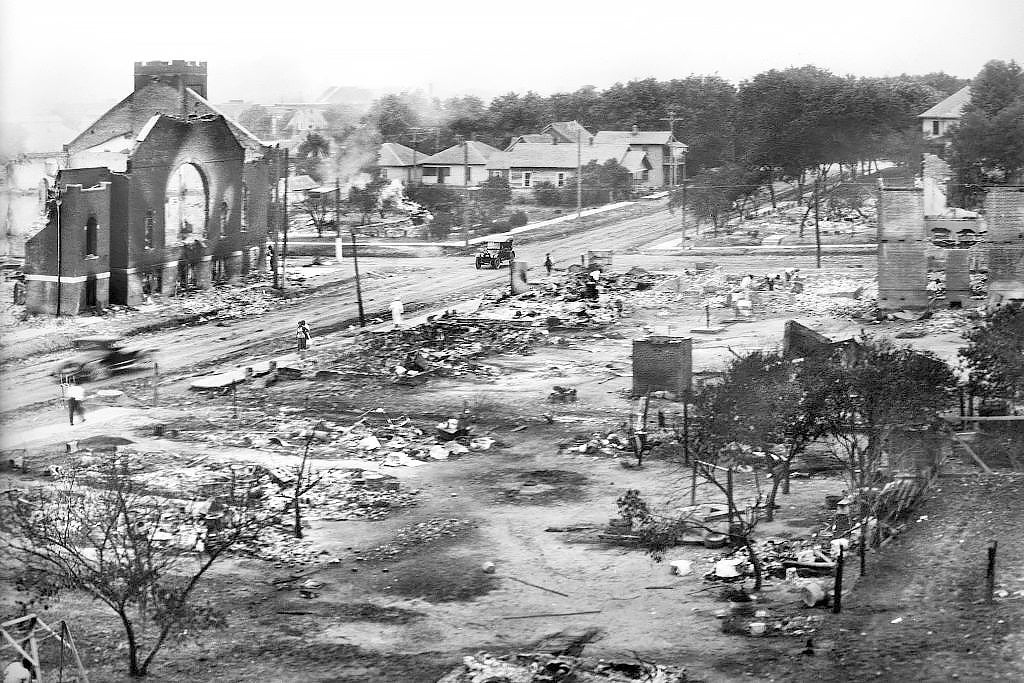
Today marks 100 years since the 1921 Tulsa race massacre when, in less than 24 hours, a white mob, including police officers, destroyed over 1,200 homes in the predominately Black Greenwood neighborhood—so prosperous it was then known as “The Black Wall Street.” An estimated 300 Black Tulsans were killed, between 8,000 and 10,000 left homeless, and tens of millions of dollars in Black wealth erased.
No one was ever prosecuted for this violence or destruction, the impacts of which Black Tulsans still feel today. In a May 29, 2020 report and May 19, 2021 congressional testimony, Human Rights Watch explained why reparations are still required 100 years later. Both detail how the city and state failed to provide restitution, thwarted attempts to rebuild, suppressed the truth about what happened, and implemented discriminatory policies in more recent years that left Tulsa deeply segregated. Large numbers of Black people live in North Tulsa, including Greenwood, which is significantly poorer and less developed than other parts of the city.
The centennial presented authorities with an opportunity to finally right these wrongs by providing comprehensive reparations. This could have come in the form of direct payments, but also in the form of housing, education, health, and economic benefits. Instead, as Human Rights Watch reported in a May 21, 2021 briefing paper, authorities focused their efforts on high-profile events put on by the state-backed Centennial Commission, which raised and spent $30 million, including $20 million for the building of a history center called “Greenwood Rising.” In doing so, they failed to adequately consult massacre survivors or many descendants, alienating many of the most impacted. Far from healing, this has compounded the extensive, ongoing, and unaddressed harm stemming from the massacre.
To truly honor the lives lost in the massacre and begin making the Black community whole, authorities should promptly consult with affected community members to develop a comprehensive reparations plan. This should include compensation to descendants of massacre victims, and immediate direct payments to the three known living massacre survivors, all over 100 years old. At the federal level, Congress should pass H.R. 40, a bill which would establish a commission to examine the impacts of slavery and post-emancipation laws and policies that have harmed Black people and prevented them from advancing and make proposals for how to provide redress and repair. These steps are necessary to begin the healing so desperately needed in Tulsa and beyond.
"wait" - Google News
May 31, 2021 at 07:07AM
https://ift.tt/3i8vGTA
US Tulsa Centennial a Timely Reminder Reparations Cannot Wait - Human Rights Watch
"wait" - Google News
https://ift.tt/35qAU4J
https://ift.tt/2Ssyayj
Bagikan Berita Ini














0 Response to "US Tulsa Centennial a Timely Reminder Reparations Cannot Wait - Human Rights Watch"
Post a Comment